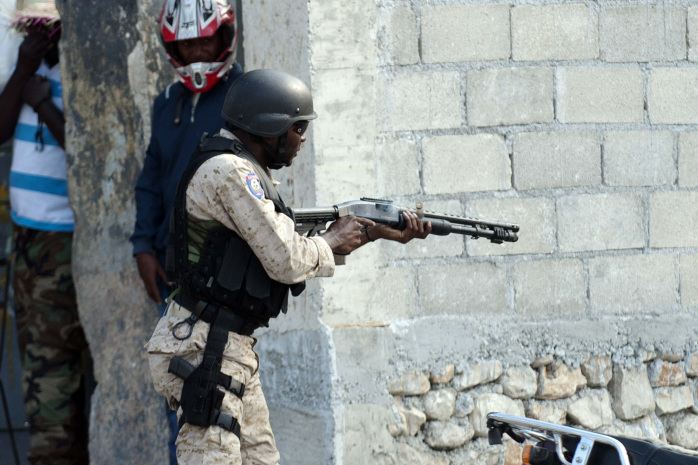PORT-AU-PRINCE, Haiti – Haiti’s leaders unveiled the lineup Monday of a unity government supposed to bridge a dangerous political void and put the fragile Caribbean nation back on the road to elected government.
Haiti has failed to hold elections in three years and parliament’s mandate expired last week, leaving President Michel Martelly de facto sole leader of the country in the face of mounting street protests.
Martelly has attempted to calm the situation by naming Evans Paul, a figure from the opposition, as his prime minister and signing a deal to hold new elections by the end of this year.
But Paul’s appointment was never ratified by the outgoing parliament and his constitutional position appears weak. Nevertheless, on Monday, he pushed on and named 44 ministers and state secretaries.
The statement announcing the new Cabinet said Paul chose the ministers “in agreement with the president … in conformity with the constitution,” and it was issued by Martelly’s presidential office.
Most of the ministers in the new lineup are reshuffled holdovers from the government of former premier Laurent Lamothe, Martelly’s great friend and wealthy ally, who resigned in December.
Formation du Cabinet ministériel: https://t.co/avhNiQmyXo
— Michel J. Martelly (@MichelJMartelly) January 19, 2015
This fact alone is unlikely to appease the opposition demonstrators, who took to the streets again over the weekend to demand Martelly step down immediately.
Opponents of the popular singer turned politician accuse him of manipulating the crisis to engineer the collapse of parliament in order to rule by decree — like Haiti’s former dictators.
In turn, his camp accuses the opposition of thwarting attempts to hold elections by refusing to pass a new electoral law that would set up and fund a commission to oversee polling.

The international community is increasingly concerned that the crisis will hurt efforts to rebuild Haiti in the wake of the 2010 earthquake and a later cholera epidemic blamed on U.N. peacekeepers.
Haiti was already the poorest country in the Western Hemisphere five ears ago, when the quake devastated the capital and surrounding region and left more than 300,000 people dead.
Before that, this nation of around 10 million had suffered periods of dictatorship and bouts of violent unrest, and United Nations troops have been deployed since 2004.
Last year, the U.N. Security Council reduced the size of the mission, which had been beefed up in the wake of the earthquake, but it remains concerned about the situation on the ground.
Next week, ambassadors from the 15-nation council will arrive in Port-au-Prince on a fact-finding mission that has become all the more urgent in the current political situation.
On Jan. 11, Martelly and representatives from several of Haiti’s political movements struck a deal to form a consensus government and push for new elections before the end of the year.
A new nine-member electoral council will be created including representatives of the Catholic, Protestant and voodoo faiths, as well as farmers, women, labor and business groups.
The accord was welcomed by Haiti’s international partners, including the United States and the European Union, but was never formally approved by the outgoing Haitian parliament before it expired.
From the archives: From pop star to president: Michel Martelly becomes Haiti’s 56th president






